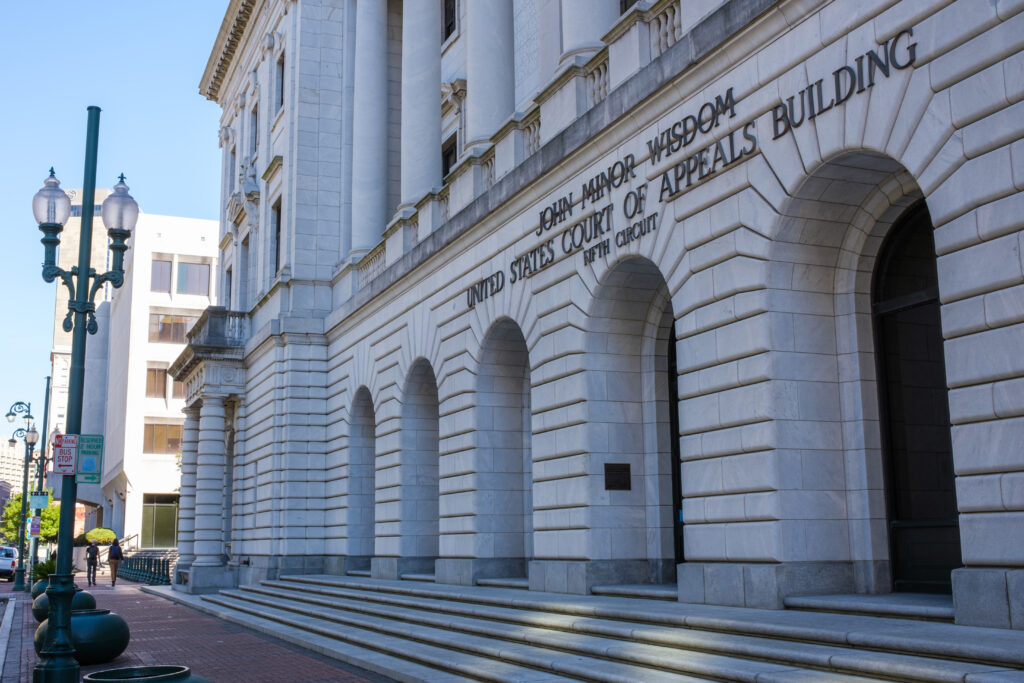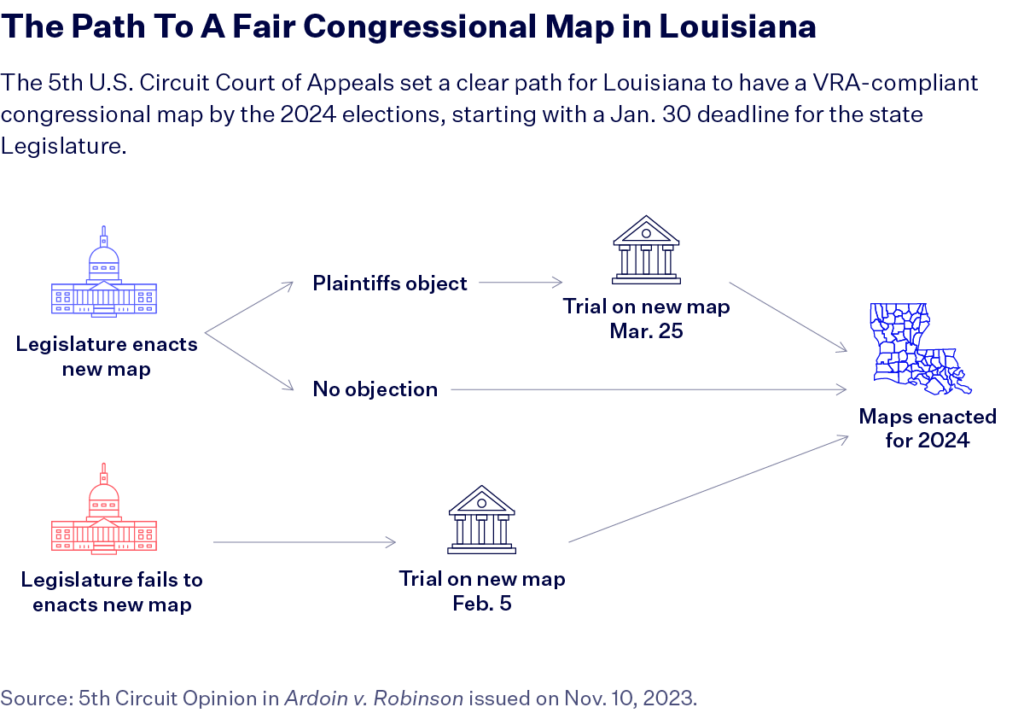5th Circuit Will Not Rehear Case Jeopardizing Voting Rights Act Precedent
WASHINGTON, D.C. — The 5th U.S. Circuit Court of Appeals will not rehear a case that could have drastically impacted redistricting and precedent under the Voting Rights Act.

Today, the 5th Circuit denied Louisiana Republicans’ cynical request for the entire 5th Circuit to reconsider the ability of private parties, such as nonprofit organizations and voters, to bring claims under Section 2 of the Voting Rights Act (VRA) to remedy discriminatory maps and voting practices.
This action is the latest in Ardoin v. Robinson, a lawsuit filed on behalf of Black voters challenging Louisiana’s congressional map for diluting the voting strength of Black voters under Section 2 of the VRA.
Earlier this month, Louisiana Republicans asked the entire 5th Circuit — as opposed to the typical three-judge panel — to rehear a decision affirming that Louisiana must draw a new congressional map. Specifically, Republicans challenged part of a November ruling confirming the ability of private litigants (civil right groups, individual voters, etc) to bring lawsuits under Section 2 of the VRA. In legal terms, this concept is known as a private right of action.
Louisiana Republicans asked the 5th Circuit to reconsider its Voting Rights Act precedent after a catastrophic ruling from the 8th Circuit in November that held that private litigants can no longer bring lawsuits under Section 2 of the VRA. Crucially, this ruling only applies to seven states in the 8th Circuit: Arkansas, Iowa, Minnesota, Missouri, Nebraska, North Dakota and South Dakota.
Today, the 5th Circuit denied this radical request, meaning that the decision will not be reheard and Louisiana Republicans’ attempt to block private groups and voters from bringing claims under Section 2 is stalled. This is a victory for voters and private groups in the three states covered by the 5th Circuit: Louisiana, Mississippi and Texas. There remains established precedent for a private right of action under Section 2 of the VRA in the 5th, 6th and 11th U.S. Circuit Courts of Appeals.
The timeline for Louisiana to adopt a new congressional map remains the same.

The Legislature now has until Jan. 30 to enact a new map or inform the court that it will not be enacting a new map. At that point, there are three distinct paths forward:
- If the Legislature does not pass a new map, there will be a trial on the existing map on Feb. 5 in the district court.
- If the Legislature does pass a new map and the plaintiffs in the lawsuit do not object to the map, that map will be enacted for 2024.
- If the Legislature passes a map that the plaintiffs object to, there will be a trial on March 25 to determine if the map can be used for 2024.
With the 5th Circuit declining to reconsider its prior decision, Louisiana is one step closer to a fair map for 2024.